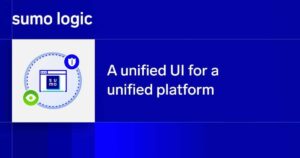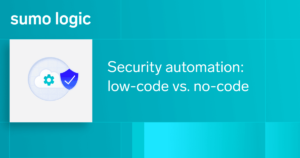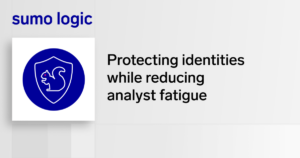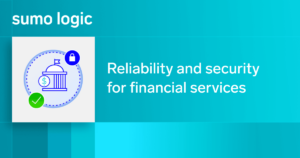Cybersecurity was bound to be affected by the dawn of a new era in the digital world, an era dominated by automation, machine learning, and artificial intelligence. As the technological landscape of cybersecurity progressed, so did the complexity of cyber threats. This made much of the technology security teams relied on redundant and obsolete, prompting security leaders to birth new, contemporary technologies to match the evolved threat landscape.
Luckily, security engineers are problem-solvers, so the problems which couldn’t be solved by past technologies laid the foundation for the genesis of a new, superior technology, known as SOAR.
However, it needs to be pointed out that not all SOAR vendors provide SOAR solutions of equal quality. In reality, every SOAR platform is different, and choosing a SOAR platform that perfectly aligns with your goals and needs requires a basic understanding of the SOAR technology. And this is what we’re going to help you understand in the remainder of this blog post.
What is SOAR? Understanding the essence of a quality SOAR platform
Coined by Gartner, SOAR (Security Orchestration, Automation and Response) has had a revolutionary effect on the cyber world from the moment of its inception. In fact, the adoption of SOAR has been so rapid that Gartner predicts that by 2020, over 30% of all security teams with over 5 team members will place SOAR at the heart of their SOC. To put it in perspective, as of 2019, SOAR has been used only by 5% of all security teams.
As described by Gartner, SOAR can be understood as a technology that enables organizations to collect inputs monitored by the security operations team.
The reason why these inputs provided by SOAR are so important is that they allow analysts and other security professionals to have increased visibility and assess every threat as it arrives in real-time. SOAR allows security teams to make faster, well-informed decisions and through automation, to practically “auto-pilot” a variety of repetitive tasks that don’t actually require human intervention, to begin with.
In short, SOAR helps security teams meticulously monitor, assess, and respond to the endless stream of alerts as they arrive in real-time. And by allowing SOC teams to increase their productivity tenfold and also boost their response time by 80%, SOAR is becoming an increasingly popular solution among security professionals.
Still, as we mentioned earlier in this blog post, not all SOAR solutions are the same. The SOAR industry is becoming more diversified as the demand for SOAR increases. So, different SOAR vendors are characterized by different traits, all of which lead to the fact that you must make a wise and well-informed decision prior to purchasing a SOAR solution.
Even though the decision regarding your ideal SOAR platform should be autonomous and completely subjective (depending on your particular needs), there are several main features that every top SOAR platform should be able to provide. And below, we’ll discuss the top 4 features every quality SOAR platform should be characterized with.
1. Easily integrable with other cybersecurity tools
Every top SOAR platform should provide an easily integrable environment where clients can easily and swiftly connect with other security tools without disrupting the natural workflow of their security processes.
This would allow every SOC team to mold their security environment according to their own preferences, without SOAR blocking their connections with other security tools. For example, our Cloud SOAR allows clients to fuse different types of security tools together and aggregate data from over 200 third-party security tools.
We pride ourselves on adopting an Open Integration Framework philosophy, which means we’re always open to adding valuable connections for your benefit. Furthermore, Cloud SOAR defines all integrations at an action level, rather than as a monolithic file which allows you to create your own integrations without our supervision and with little coding experience required.
2. Dedication to continuous innovation
If you don’t move forward, you’re moving backward. That saying holds true in the cybersecurity niche more than any other.
A top SOAR platform is distinguished by its continuous effort to become the best. There is a wide range of SOAR vendors out there, and an ambitious SOAR vendor always sets goals to extend the limits of the SOAR technology in order to create a unique and recognizable SOAR platform.
Our Cloud SOAR, for instance, is a result of Sumo Logic’s unique vision to shape Cloud SOAR into the most contemporary SOAR solution on the market. Cloud SOAR is dedicated to always stay one step ahead of evolved cyber threats, that’s why we have made it our primary goal to pave the road for the next-gen SOAR technology by transforming our vision into a pioneering SOAR solution.
Naturally, given that actions speak louder than words, we are proud to say that we are Sumo Logic is the SOAR vendor with the biggest number of patents (three) regarding its innovative SOAR technology:
-
1st patent: Incident Correlation and Visualization
-
2nd patent: Machine Learning Method for playbook Automation
-
3rd patent: Innovative Case Management Functionality
By continuously investing in a more innovative SOAR platform that responds to the necessities created by the most contemporary issues, the SOAR vendor shows that it is willing to create a SOAR solution that is always striving to improve. And that is an important trait that every top SOAR platform should be decorated with.
3. Customizable dashboards, reports, and KPIs
A top SOAR platform should allow users to create and follow meaningful KPIs. This is a necessary component for security analysts to accordingly measure relevant security information for strategic security decisions. It allows everyone on the SOC team to have a clear perception of how to define success, and with clear and concise KPIs, the organization would have a better understanding of which areas need to improve.
For instance, Cloud SOAR allows users to analyze over 140 customizable KPIs via a centralized dashboard. Users can also analyze every separate phase of an incident response workflow to optimize their performance, and benchmark security operations by using real-time data. This means that the Cloud SOAR platform allows users to have a full awareness of the current state of their security operations.
Having a customized KPI dashboard will not only help you measure your success toward the completion of a certain goal, but you will also have a better understanding of how your performance creates positive and negative trends and recognize unwanted patterns and behaviors that may hinder the progress of your security strategy.
4. Progressive automation based on a machine learning engine
One of the main traits of a state-of-the-art SOAR platform is progressive automation. Automation is actually one of the features that distinguish SOAR from other security tools.
Progressive automation describes the process of using artificial intelligence and machine learning to assist SOC teams by automating repetitive, time-consuming tasks. The term progressive here means that the machine learning engine constantly upgrades its knowledge base and uses the information from different threats to detect patterns and predict movements, therefore becoming more and more powerful with each passing day.
The reason why progressive automation is so highly valued is that it allows security teams to instantly resolve two major problems:
-
Prevents alert fatigue
-
Detects false positives
Many SOC teams are often overwhelmed by the sheer volume of threats that can count thousands by the day. What’s even more frustrating is that many of those alerts are often false positives, meaning that they posed no actual threat and their only goal is to waste analysts’ time by checking them, while the real threats are left unassessed.
In this case, progressive automation is capable of simultaneously assessing a wide range of alerts, analyzing the potential risk they pose, and by using the knowledge extracted from previous encounters with other alerts with similar characteristics, it can determine – with great accuracy – whether the alert presents an actual threat or it can be labeled as a false positive.
This relieves analysts from the duty of having to manually assess every alert, increases the SOC efficiency by responding to alerts in a faster, more effective manner, and allows analysts to focus on next-level threats that require manual intervention.
Choosing the perfect SOAR platform is a matter of meticulous calculations
As we mentioned earlier in the blog post, there are a variety
of SOAR vendors, each characterized by distinctive qualities that may or may not fall into the scope of what you expect of a SOAR solution. This is why you need to perform thorough research in order to make the most out of the money you invest in a SOAR platform:
-
Internal and external analysis: Analyze the needs of your organization and find the most suitable SOAR platform whose qualities match your needs the most.
-
Seek flexible and customizable SOAR solutions: The SOAR platform you choose shouldn’t force you to adapt your working environment to how that SOAR solution operates. It should be the other way around, and the SOAR platform you choose should fit into your ecosystem like a glove, adapting itself to your particular workflow.
-
Double-check the SOAR vendor: A top-quality SOAR vendor uses the opportunity to share its victories and accomplishments on social media. Check out the SOAR vendor you choose to collaborate with and see what the world thinks of them by simply researching their accomplishments online.
Lastly, remember that the mere act of implementing a SOAR solution into your environment doesn’t instantly replace the hard work and constant dedication of the SOC team. A SOAR solution will work only as well as the environment it is deployed in, no matter how advanced and complete it may seem. It will still be dependent on the quality of work performed by the entire SOC team.
You may incorporate the best SOAR platform available on the market that perfectly aligns with your needs, but if your SOC team doesn’t utilize the benefits that the SOAR solution provides, then you’d be under the impression that the SOAR platform you have chosen doesn’t fit.



